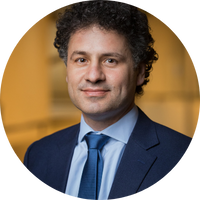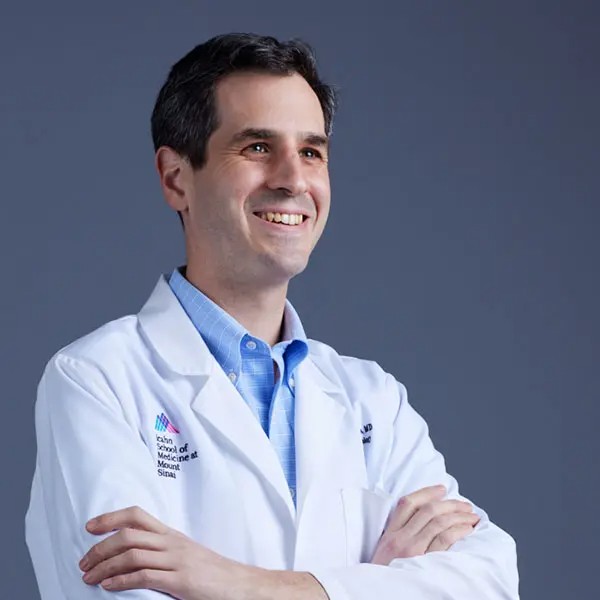
Introduction
Crohn’s disease (CD) is a chronic and disabling inflammatory bowel disease (IBD), culminating ni disease progression ni many patients.1,2
Although IBDs are progressive lifelong diseases, contemporary clinical trials exclusively evaluate short-term endpoints, such as clinical and endoscopic remission according to the Selecting Therapeutic Targets in Inflammatory Bowel Disease (STRIDE) consensus, rather than disease- modification endpoints.1,2
Early disease control to prevent disease progression in Crohn’s Disease could be critical, but prospective disease modification trials are eagerly awaited to determine whether this approach should become routine in clinical practice.1
In this webinar, three international thought leaders will discuss their own clinical expertise, how “real-world” practice compares to current “best practice” guidelines, and expand on the potential of disease modification to improve outcomes for patients with Crohn’s disease.

Faculty
TIM RAINE, MD, PHD, Department of Gastroenterology, Addenbrooke’s Hospital, Cambridge University Hospitals NHS Trust, Cambridge, United Kingdom

Faculty
SÉVERINE VERMEIRE, MD. PHD, Department of Gastroenterology and Hepatology, University Hospitals Leuven, KU Leuven, Belgium

Faculty
RYAN UNGARO, MD, MS, The Henry D. Janowitz Division of Gastroenterology, Icahn School of Medicine at Mount Sinai, New York, NY, USA
Learning Goal
The goal of this activity is to increase clinicians’ knowledge and competency in evidence-based management strategies for patients with Crohn’s disease, with a focus on disease modification.
Target Audience
This activity is intended for healthcare professionals who manage adult patients with Crohn’s disease, including Gastroenterologists, Hepatologists, Internal Medicine specialists, Immunologists, and allied healthcare professionals practicing globally (inclusive of USA).
Learning objectives
After completing this educational activity, learners should be able to:
- Explain the concept of disease modification in the context of CD.
- List well-defined disease modification outcomes used in other therapeutic areas and identify publications/tools relevant to disease modification i n CD.
- List key therapeutic goals in patients with CD, particularly regarding disease impact on patients’ lives, mid-term and long-term complications.
- Outline the importance of red flags and risk stratification in primary care and specialist services.
- Identify tools which may be incorporated into establishing disease modification outcomes.
- Discuss how monitoring symptoms and inflammation biomarkers leads to superior CD
- Explain how early treatment is associated with higher clinical remission rates.
- List currently available therapies for the treatment of CD.
- Establish when treatment de-escalation may be appropriate.
Accreditation Statement
Oakstone Publishing designates this live activity for a maximum of 1 AMA PRA Category 1 Credit(s) TM. Physicians should claim only the credit commensurate with the extent of their participation in this activity.
Expiration Dates
Upon completion of this activity, the deadline to complete the evaluation form to obtain CME credits is November 30, 2023.
CME Reviewer
Sandy Mardant, Oakstone Publishing – Director of Continuing Education
Oakstone Publishing has assessed conflict of interest with its faculty, authors, editors, and any individuals who were in a position to control the content of this CME activity. Any identified relevant conflicts of interest have been mitigated. Oakstone Publishing’s planners, content reviewers, and editorial staff disclose no relationships with ineligible companies.
PEER Reviewer
This activity has been peer-reviewed and the reviewer has disclosed no financial relationships.
Mitigation of Relevant Financial Relationships
Tim Raine, MD, PhD
Dr. Tim Raine has disclosed the following financial relationships:
- Research/educational grants and/or speaker/consultation fees: AbbVie, Arena, Aslan, AstraZeneca, Boehringer Ingelheim, BMS, Ferring, Galapagos, Gilead, GSK, Heptares, LabGenius, Janssen, Pfizer, Roche, Takeda, UCB.
Séverine Vermeire, MD, PhD
Dr. Séverine Vermeire has disclosed the following financial relationships:
- Grant/consulting and/or speaker fee: AbbVie, Galapagos, J&J, Pfizer, Takeda.
- Consulting and/or speaker fee: AbbVie, AbolerIS Pharma, AgomAb, Alimentiv, Arena Pharmaceuticals, AstraZeneca, BMS, Boehringer Ingelheim, Celgene, Cytoki Pharma, Ferring, Galapagos, Genentech-Roche, Gilead, GSK, Imidomics, Janssen, J&J, Lilly, MiroBio, Morphic, MrMHealth, Pfizer, Progenity, Prometheus, Shire, Surrozen, Takeda, Theravance, Zealand Pharma.
Ryan Ungaro, MD, MS
Dr. Ryan Ungaro has disclosed the following financial relationships:
- Consultant and/or Speaker: AbbVie, BMS, Janssen, Pfizer, Takeda.
- Research grant: AbbVie, BMS.
- Grant reviewer: Pfizer.
Editor
Rita Aresta MD
Scientific Content Manager
Rita Aresta MD has disclosed no financial relationships.
Disclosures
Faculty disclosures
Tim Raine, MD, PhD
Addenbrooke’s Hospital, Cambridge, UK
Séverine Vermeire, MD, PhD
University Hospitals Leuven, Leuven, Belgium
Ryan Ungaro, MD, MS
Icahn School of Medicine at Mount Sinai, New York, USA
Participation Costs
There is no cost to participate in this CE activity.
CME Inquiries
For all CME policy-related inquiries, please contact us at [email protected]
1. Kloppenburg M et al. J Rheumatol. 2015;42(11):2190–7.
2. Khanna R et al. Lancet. 2015;386(10006):1825–34.
Categories: Gastroenterology, Internal Medicine, Primary Care / Family Medicine, Rheumatology, Surgery

